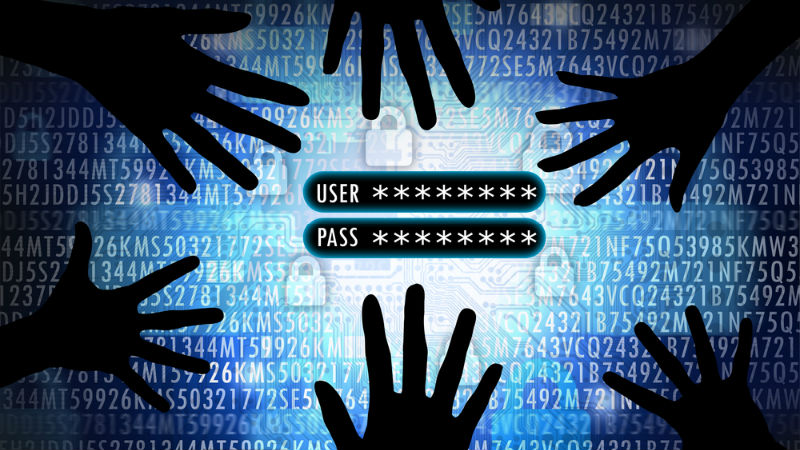Is your identity at risk? 5 red flags to watch for
To avoid becoming a victim of identity theft, it is important to change some of your behaviors. Start taking necessary measures now

Since the explosion of the web in the mid-1990s, identity theft and fraud risks have increased considerably. Initially, online payment systems and stores raised concerns about cybercrime, but now that the internet has become an integral part of life and society, the risk has only grown. Fortunately, this growing risk has given rise to a number of identity theft protection services.
Who is most vulnerable to identity theft? Are younger generations who grew up using the web more aware of the risks, or are older adults who are more skeptical and untrusting less likely to fall victim? How can you tell if your identity is at risk of being stolen?
Some people are more at risk than others
Identity theft is a persistent problem that has been around for a long time. It involves individuals pretending to be someone else to gain a financial advantage. Nowadays, it has become a significant form of fraud, with criminal gangs operating specialized units focused on stealing identities and carrying out subsequent fraud and, sometimes, extortion.
However, the risk of identity theft is not equal for everyone. If you can manage to keep a firm grip on your identity, you can prevent your identity from being stolen, and fraud cannot be committed in your name.
Unfortunately, some people are more vulnerable to identity theft than others. Here are five key signs that you may be at risk of identity theft.
1. You don't check credit card or bank statements
When you receive a bank or credit card statement, you may be tempted to toss it aside without opening it. After all, you know what you've purchased and what bills you've paid, so what's the point in checking? However, it's important to remember that if your credit card has been cloned, you may not be aware of the fraudulent activity without reviewing your statement. Similarly, if someone has opened a loan in your name and is making monthly payments from your bank account, you won't know unless you read your bank statement. Therefore, it's always a good idea to take the time to review your financial statements carefully.

2. You use the same username and easy to remember password on every account
Is using the same username and password easier for all your accounts? It might seem like a good idea since passwords are hard to remember. But it's risky and complicated. Using one password for all your accounts makes it easier for someone who finds your password to access all of your data. They can access your cloud accounts, email, and social media using just one password. Even if banks and credit card accounts require additional data, a scammer who has your passwords for everything else has enough information to pose as you on the phone.
Are you a pro? Subscribe to our newsletter
Sign up to the TechRadar Pro newsletter to get all the top news, opinion, features and guidance your business needs to succeed!
- These are the best password generators
3. You have never checked your credit report
Have you ever thought your credit report is only necessary when applying for loans or mortgages? Do you believe that it's only available to banks and loan companies? You won't know how your data is compiled if you haven't read your credit report. You won't understand how your accounts are paid off monthly and which credit searches have been done. For instance, when you buy a new phone, the company must run a credit check. If you have paid off a loan, it will be listed in the credit report. If someone has used your name to apply for credit, you won't know unless you check your credit report. It's high time you sign up for Experian or similar services to access your credit report and review it monthly.

4. You happily click links in emails claiming to be from your bank
Have you ever received an unsolicited text message or email requesting you to verify your login details? Scammers online use a deceptive technique to exploit this habit by sending messages that appear to be from your bank or financial institution. They might even incorporate the logo and typeface of your bank to make it appear legitimate.
The email usually includes a link that prompts you to verify your account details by submitting your username and password. However, it's crucial to remember that these messages are part of a fraudulent scheme. The scammers record your login credentials and any other sensitive information you might provide. Therefore, it's best to avoid clicking on links in unsolicited messages and never provide your login credentials unless you are entirely sure that the message is legitimate.
5. You share everything on social media
Have you heard of oversharing? It's when you reveal too much information about your life to others, such as on social media platforms like Facebook. This can include sharing pictures of your meals, your thoughts about your daily commutes, your current location, past locations, and the people you're spending time with.
However, this type of information can be used by identity thieves to create a profile of you. They can utilize this information to commit crimes, such as mugging you, stealing your phone and wallet, and assuming your identity to obtain a line of credit. Additionally, they could use it to track your whereabouts and break into your home to receive your banking information.
Social media can be enjoyable, but sharing everything can be dangerous. It's essential to be more cautious and selective about what you share. Share only the good times and limit the information you provide, especially regarding your current location and activities. You can also turn off the "check-in" feature and keep your friends list small to protect yourself from potential threats.
- We've also picked out the best social media management tools
Counter your risky behaviors
Additional signs that may indicate potential identity theft include carrying your social security (US) or National Insurance (UK) number in your wallet, and not securing your bank statements where visitors can't access them. It is important to recognize the dangers and not assume that it won't happen to you. Instead, responsible behavior that takes into account the significance of your financial situation is necessary. Having your identity stolen can be a life-altering experience, and it is essential to avoid it. Fortunately, by avoiding common mistakes and adopting new behaviors that protect your identity, you can prevent identity theft.
More from TechRadar Pro
- We've rounded up the best secure drives to help keep your data safe on the go
- Protect your online privacy with one of the best VPN services
- These are the best anonymous browsers on the market
- Also check out our complete list of the best identity theft protection
Christian Cawley has extensive experience as a writer and editor in consumer electronics, IT and entertainment media. He has contributed to TechRadar since 2017 and has been published in Computer Weekly, Linux Format, ComputerActive, and other publications. Formerly the editor responsible for Linux, Security, Programming, and DIY at MakeUseOf.com, Christian previously worked as a desktop and software support specialist in the public and private sectors.
